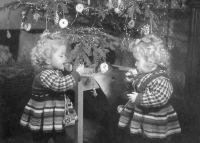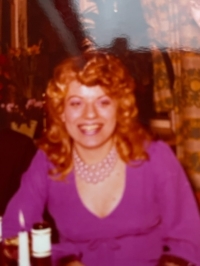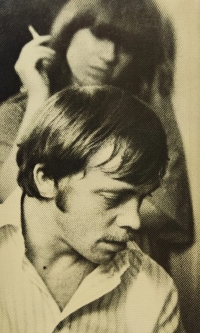It is necessary to forget about hatred

Download image
Helena Paessler, née Kotz, was born on 11 July 1953 in Teplice, North Bohemia. Both her parents - Herbert and Gerda Kotz - were of German nationality. Helena’s mother and part of her family were deported to Germany during 1945. Since the parents already knew each other, Herbert decided to smuggle Gerda back to Czechoslovakia in 1948, where he taught her Czech fluently within a few months. His family was cruelly affected by the post-war rampage of the Revolutionary Guards. Aunt Marie Kunzel was killed by lapidation in Sezemice immediately after she refused to be deported as a German. The guards also murdered her husband Josef and Herbert’s uncle Emil Kunzel did not escape the massacre. Helena and her twin sister Krista grew up in a pervasive atmosphere of hatred for everything German. This was not the only reason why the family decided to apply for emigration to West Germany, where they actually ended up in 1965. Three years later, the two sisters were hit hard by the Soviet invasion of Czechoslovakia. During a visit to Teplice, Helena met the music publicist Jiří Černý, who encouraged her to meet Karel Kryl in Germany. This led to a friendship, but also to many years of cooperation with Czech dissent - Helena transported paper across the border for printing samizdat or exile books by authors banned by the regime. During 1979, she started working as an accountant in the Dialog bookshop, founded by the dissident Milan Horáček, and worked there until the Velvet Revolution in 1989.In addition, she successfully graduated as a teacher and pursued this profession in parallel.The central theme of her life is the reconciliation of Czechs and Sudeten Germans.Since 2021 she has been the chairwoman of the Seliger-Gemeinde, which brings together former Sudeten German refugees and Holocaust survivors.Helena Paessler lived in Wiesbaden, Germany, at the time of the interview (2023).


